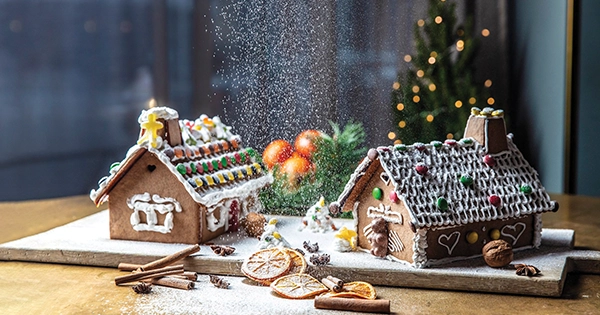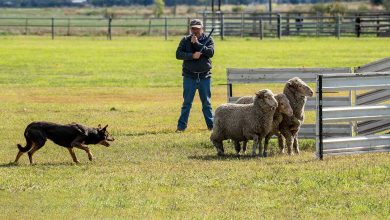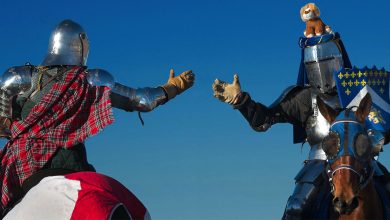Christmas the Silly Season
By Ivor Jones
“Bring a plate along” is often said to people when inviting them to a Christmas function, however when said the first time to someone born overseas it can be confusing.
They may think that you are short on crockery and to help out if you bring a plate along it would ensure that everyone would have a plate from which to eat. Christmas in Australia can be confusing to many from other lands.
In the Northern Hemisphere it is winter in December and naturally hot dishes would be served whereas here in the Southern Hemisphere it is midsummer and whilst one would perhaps murder a cold ale and also cold dishes that is not always the case.
A lot of Northern Europeans holidaying down-under go to Bondi Beach to get sand between their toes and perhaps share a cold Barbecued chicken and salad whilst a lot of Aussies sit down to a hot roast turkey with cranberry sauce, roast potatoes or maybe a Barbecue with an Esky full of the drink of their choice.
In this article I want to take a look at Christmas as celebrated by various cultures around the world. The name Christmas would indicate that it is a Christian celebration celebrating the birth of Jesus Christ.
Christmas celebrations start at different times in many countries. Most nations have celebrations that are common to all. Many of these traditions started in the 1800s in Germany but there are also some local traditions that may have been started by some enterprising individuals and have been adopted by their neighbours or others.
In Norway, the Christmas season, called julebord, begins Dec. 3, filling up local bars and restaurants throughout the month. Families celebrate Little Christmas on Dec. 23; each has their own ritual for the day that may include decorating the tree, making a gingerbread house, and eating risengrynsgrøt (hot rice pudding).
In Wales, one of the oldest Welsh Christmas traditions, Plygain, is still celebrated today. In history, the earliest known recording of a Plygain service is from the 13th Century.
People would gather together in rural churches where men belt out their favourite Welsh carols into the early morning.
Another Welsh tradition is that of Mari Lwyd. It involves decorating the skull of a horse and wearing it above your head. The earliest documented occurrence of Mari Lwyd was in the 17th Century.
Groups of men come together to follow a makeshift hobby horse around the town. The Mari Lwyd Welsh Christmas horse would be carried by the ‘leader’. He would be followed by his men dressed in costume or fancy attire, such as the playful characters of Punch and Judy.
They would make their way from door to door, requesting entry into the homes of locals in song. Those dressed as Punch would tap on the door or knock on the floor to keep up the song’s pace. Judy would brush the windows and walls with a broom. The owners of the homes would deny entry, again through the power of song. This continued back and forth until one or the other gave up.
If the homeowners were first to yield, they had to let the group in for food and merriment. The homeowners also had to ensure they warned Punch not to touch their fireplace; otherwise, he would rake out ember and ash from the open fire grates.
As I mentioned earlier, many of our Christmas traditions originated in Germany and Austria but there are some localised traditions in Germany and Austria that have not been adopted widely.
One such celebration is Krampus Night, celebrated in some parts of Germany and Austria. During Krampus Night strong men wear furry coats, devil masks and demonic garb while going from house to house. When the parents let them into the house, they try to scare the children to ensure they behave well.
A misbehaving male teenager may be gripped by the hands and feet and dragged outside. The teenager is then dunked in the snow a few times to the enjoyment of their siblings. Krampus and all of the devils then celebrate the night at the local pub.
These are just a few of the different celebrations from the Northern Hemisphere.











